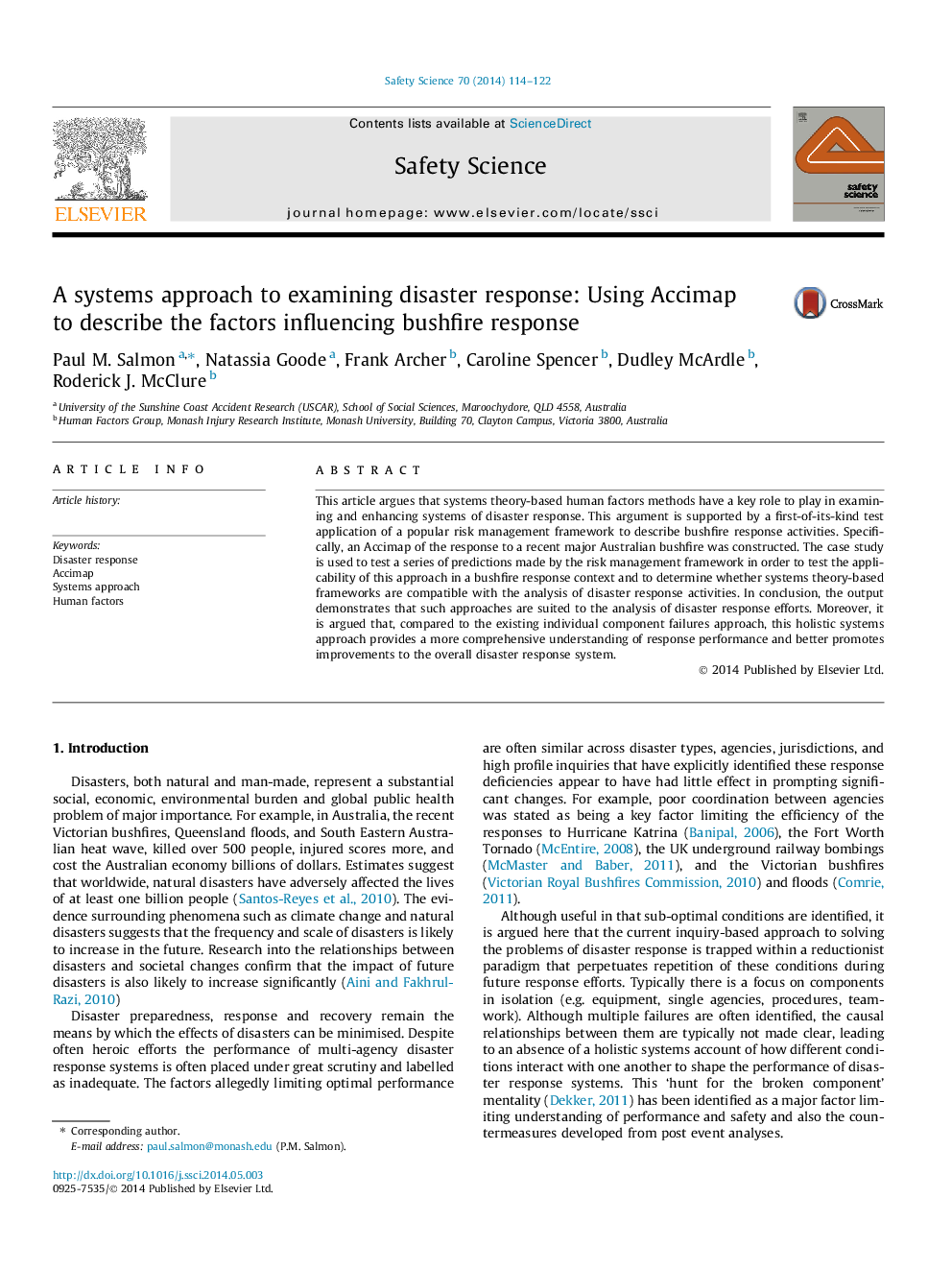| Article ID | Journal | Published Year | Pages | File Type |
|---|---|---|---|---|
| 6976076 | Safety Science | 2014 | 9 Pages |
Abstract
This article argues that systems theory-based human factors methods have a key role to play in examining and enhancing systems of disaster response. This argument is supported by a first-of-its-kind test application of a popular risk management framework to describe bushfire response activities. Specifically, an Accimap of the response to a recent major Australian bushfire was constructed. The case study is used to test a series of predictions made by the risk management framework in order to test the applicability of this approach in a bushfire response context and to determine whether systems theory-based frameworks are compatible with the analysis of disaster response activities. In conclusion, the output demonstrates that such approaches are suited to the analysis of disaster response efforts. Moreover, it is argued that, compared to the existing individual component failures approach, this holistic systems approach provides a more comprehensive understanding of response performance and better promotes improvements to the overall disaster response system.
Related Topics
Physical Sciences and Engineering
Chemical Engineering
Chemical Health and Safety
Authors
Paul M. Salmon, Natassia Goode, Frank Archer, Caroline Spencer, Dudley McArdle, Roderick J. McClure,
